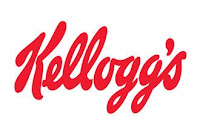Why a setback is good for a brand
 When consumers trust a brand, in a macabre way, it is helps the brand when it is faced with a setback. Assuming, it handles the difficult situation with aplomb. In fact, the brand's responsible response to the setback can reinforce consumer trust.
When consumers trust a brand, in a macabre way, it is helps the brand when it is faced with a setback. Assuming, it handles the difficult situation with aplomb. In fact, the brand's responsible response to the setback can reinforce consumer trust.That's what's happened in the case of the world's leading breakfast cereal brand, Kellogg's. Sure, Salmonella contamination to its bulk-shipped peanut butter is worrisome and may even cause consumers to stay away from the brand for some time. Maybe peanut butter consumption itself could be affected. But the 'recall' by Kellogg's will go a long in reinforcing the 'trust' that consumers have in the Kellogg's brand. The trust that if some thing's wrong and Kellogg's knows about it, it wouldn't try and hoodwink consumers. What began as an investigation of bulk peanut butter shipped to nursing homes and institutional cafeterias has broadened with the Kellogg Co. recalling 16 products and federal officials confirming salmonella contamination at a Georgia facility that ships peanut products to 85 food companies. Kellogg had asked stores earlier this week to pull some of its venerable Keebler crackers from shelves as a precaution. But in a statement late Friday the Battle Creek, Mich., company announced it was voluntarily recalling the crackers and other products in light of the problems in Georgia.
As I mentioned, brands with strong equities can turn a setback into an opportunity for reinforcement. Kellogg's, for one, did that!
Comments